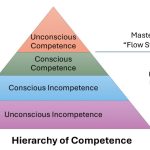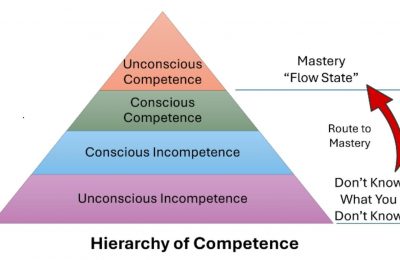You’ve probably heard someone described as “Machiavellian”—and let’s be honest, it wasn’t a compliment. But what does it actually mean?
Is Machiavellianism just a fancy word for being manipulative, or is there more to it?
In this post, we’re going to break it down simply: the meaning of Machiavellianism, its origins, how the term evolved, and why it’s not always as evil as people think. We’ll even look at real-world examples so you can spot it in action.
Whether you’re into psychology, business, or just want to get sharper at reading people, this is the place to start.
Machiavellianism Meaning in Plain Terms
At its core, Machiavellianism is about strategic manipulation, often with a focus on achieving personal gain—sometimes at the expense of others.
The basic Machiavellian definition refers to someone who is cunning, calculating, and willing to use others to reach their goals.
In psychology, it’s one-third of the Dark Triad, alongside narcissism and psychopathy. People high in Machiavellian traits tend to be:
- Skilled at influencing others
- Focused on personal gain
- Emotionally detached
- Strategic, not spontaneous
But—and this is important—it doesn’t always mean they’re “bad” people. It means they know how to play the game.
The Origin of Machiavellianism — Who Was Niccolò Machiavelli?
The term comes from Niccolò Machiavelli, a 16th-century Italian diplomat and philosopher.
His most famous work, The Prince, was written as a guide for rulers on how to maintain power. It was brutally honest. He suggested that leaders should prioritise results over morality, use fear when necessary, and manipulate perception to control outcomes.
One of his most famous ideas?
“It is better to be feared than loved, if you cannot be both.”
Sounds cold, right? But Machiavelli wasn’t trying to promote evil—he was observing how power actually worked in the chaotic world of Renaissance politics.
Over time, though, the term “Machiavellian” became associated with deceit, ruthlessness, and manipulation, especially when used in personal or corporate settings.
Machiavellian Philosophy: Pragmatism Over Morality?
Machiavelli believed that people aren’t always good, and those in power must be prepared to deal with human nature as it is, not as we wish it to be.
That’s why his philosophy centres on pragmatism—doing what works, even if it isn’t morally ideal.
In modern terms, this might look like:
- A business leader quietly outmanoeuvring rivals
- A politician shaping public perception to gain votes
- A negotiator withholding certain truths to close a deal
This doesn’t automatically make them evil—it makes them strategic.
The ethical dilemma? Where do we draw the line between smart and shady?
Is Machiavellianism Always Bad? Common Misconceptions
Here’s the thing: not all Machiavellian traits are negative.
In fact, many can be incredibly useful:
- Thinking several moves ahead
- Staying calm under pressure
- Understanding others’ motivations
The danger lies in intent. If you’re using these skills to harm or deceive others for personal gain, you’re going down a dark path.
But if you’re using them to protect yourself, navigate tricky situations, or even negotiate better deals, then it becomes more about self-defence and influence.
As I mentioned in my post Master the Dark Art of Machiavellian Strategy to WIN, it’s not about hurting others—it’s about becoming a controlled monster. Someone who understands power, but uses it ethically.
Everyday Examples of Machiavellianism
Once you understand it, you’ll start to see Machiavellian behaviour everywhere:
- In the workplace: That colleague who subtly undermines others to get ahead.
- In dating: Someone mirroring your values and interests just to gain your trust.
- In leadership: Politicians making calculated emotional appeals to win support.
These behaviours might seem innocent at first, but there’s usually a deeper strategy at play.
That’s why learning to recognise the signs can help you navigate power dynamics, protect your boundaries, and avoid being manipulated.
Final Thoughts — Understand the Game, Then Play It Your Way
So, what is Machiavellianism?
It’s a way of thinking—of seeing people, power, and persuasion through a strategic lens. It can be dark, yes. But it can also be sharp, effective, and protective, if used ethically.
By understanding it, you’re not becoming “bad”. You’re becoming aware. You’re levelling up your mental chess game. And you’re reclaiming personal sovereignty.
If you’re ready to take this further, check out my guide to putting this mindset into action:
👉 Master the DARK ART of Machiavellian Strategy to WIN!
Also, be sure to check my YouTube video on this topic: Master the DARK ART of Machiavellian Strategy to WIN!
📚 Want to Learn More?
Stay tuned — I’ll soon be sharing posts on:
- 👉 Real-world Machiavellian tactics (and how to counter them)
- 👉 The psychology of the Dark Triad
- 👉 How to use influence without losing your ethics
Until then, remember: the pen is mightier than the sword—especially when it’s held by someone who knows the game.







One Comment
youtube downloader for pc
July 4, 2025 at 4:00 pmThanks for your personal marvelous posting! I certainly enjoyed reading it, you are a great author.I will be sure to
bookmark your blog and will often come back from
now on. I want to encourage you to definitely
continue your great work, have a nice evening!